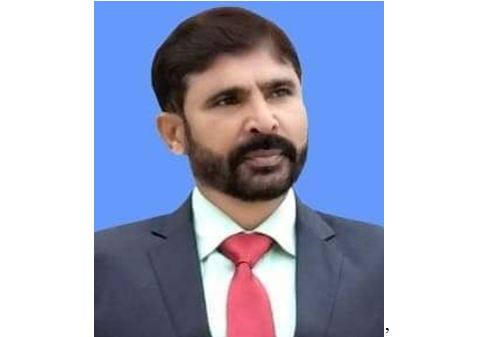Dr. Muhammad Akram ZaheerThe world’s political system change over time is a bit like how living things grow and develop. It is a complicated system with different parts that work together. Sometimes, there’s an imbalance in power between different parts of the world, like big countries having more power than others. When power is spread out more evenly in the world, the system can switch big changes for better. The system needs change to keep growing and develop. As it changes, it creates new parts. These new parts make the system work better because they become really good at what they do. One interesting example of this is the Gateway region. Eastern Europe is becoming a place that connects different parts of the world. In the future, the Middle East might also become a Gateway. And in the next few decades, about thirty more Gateway states might appear. These are small countries that will break away from bigger ones to help the world system connect and work together. These gateways help the system to adapt change, interplay and relationship among countries.Today geopolitical tensions have arisen which depend on a complex interplay of different factors. Diplomacy, conflict resolution and international cooperation play important roles in managing and reducing these tensions. Currently, the United States holds the position of the world’s sole superpower. Over the next decades, the country will adopt new strategies to maintain affordable electricity. This strategy bears similarities to isolationism, as the United States will refrain from significant involvement in regional military conflicts. Instead, it will provide support to its allies through supplies, training and limited airpower, opting for a more indirect approach to addressing regional issues in Europe, the Middle East and Asia. This strategic shift is expected to help the United States maintain its global hegemony. In Europe, the European Union (EU) may undergo dissolution or redefinition as a smaller trading zone covering a reduced portion of the continent. The current free trade structure appears unsustainable due to member states, particularly Germany, becoming overly reliant on exports. This dependence leaves their economies highly susceptible to fluctuations in demand beyond their borders. Germany may experience an economic downturn due to inevitable export market fluctuations, leading to its diminished influence in Europe by 2040. This decline may open up opportunities for Central Europe, notably Poland, to become a more significant regional power. Russia will continue to grapple with the repercussions of relatively low oil prices. The income derived from this sector has been essential for maintaining internal stability. With a significant reduction in this income, Russia may either transform into a confederation or experience separatist movements by 2040, raising important questions regarding the future of its nuclear arsenal. In Asia, as China’s competitiveness in export markets wanes, high unemployment will become a major concern for the Chinese government. To prevent an economic downturn, the government may seek to consolidate its power and embrace authoritarian measures. Nevertheless, China’s diverse regional setting will present challenges to such centralized control. Consequently, by 2040, China may experience a return to regionalism marked by a degree of chaos. As China weakens, a power vacuum in East Asia may emerge, which Japan is well-positioned to fill, given its robust economy and significant military capabilities? In the Middle East, it is difficult to foresee an end to or effective control of Islamic extremism. Instead, it may continue to expand its influence and territory. Turkey and Iran are the only regional actors with the potential to counter these extremist groups, but Iran may not take any such action. Given the ambitions of these extremist groups to reinstate the caliphate, Turkey may find itself compelled to intervene militarily to safeguard its borders. This military and economic assertion by Turkey may lead to a resurgence of a regional power reminiscent of the Ottoman Empire, positioning Turkey as the dominant regional force by 2040.The future geopolitical environment is marked by a complex interplay of factors that will shape global dynamics over the next decades. The United States, as the current sole global power, is poised to adopt a new strategy resembling isolationism to maintain its dominance. Europe faces potential challenges as the European Union may redefine itself, while Germany’s economic vulnerability could shift the balance of power in the region. In Russia, weakened oil prices could lead to internal fragmentation, raising concerns about the future of its nuclear arsenal. In Asia, China’s economic decline may usher in a return to regionalism and give rise to Japan as a leading power. Meanwhile, the Middle East continues to grapple with the persistence and expansion of Islamic extremism, with Turkey potentially reasserting itself as a dominant regional force. The evolving geopolitical landscape will demand careful diplomacy, conflict resolution, and international cooperation to address these emerging trends and strains in the years to come. The dominant theme can be see playing out over the course of the next decades is increasing disarray in Europe and Asia. It is expected the prolong stability in North American with U.S. rivals working to increase their footholds in Latin America. Despite the growing instability in Eurasia, also expect to see three regional powers emerge: Japan, Turkey and Poland. These countries will be outliers in an otherwise fragmented Eastern Hemisphere.The changing global geopolitical scene is a dynamic and ever-evolving phenomenon that presents both opportunities and challenges for nations around the world. As new powers rise and traditional alliances shift, the need for diplomacy, cooperation and adaptability becomes increasingly paramount. In this period of interconnectedness and interdependence, it is essential for nations to recognize the importance of multilateral cooperation, embrace sustainable and inclusive policies and work towards a more peaceful and prosperous global future. The complexities of the 21st century demand creative solutions and a commitment to shared values, as we navigate the shifting tides of global geopolitics in a manner that promotes peace, stability and prosperity for all.












